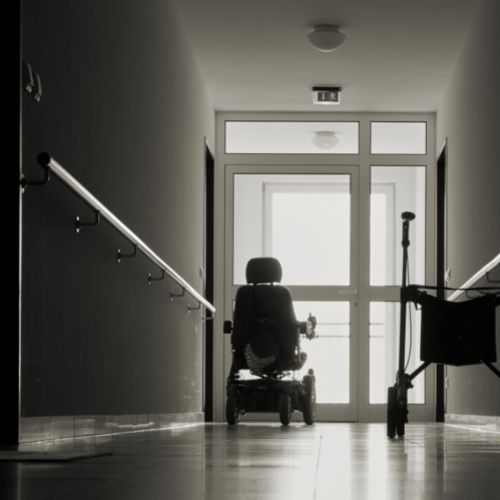Nikki McConnell examines the evidence of poor care, neglect and abuse in Northern Ireland care homes.
Care Home Neglect and Abuse in Northern Ireland
Moving an elderly loved one into a care home isn’t an easy decision to make, and it can be a very difficult time for both parties involved. Many caregivers suffer from a lot of unnecessary guilt and anxiety during this time, so it’s essential that you’re equipped with the tools to navigate this emotional upheaval in your life.
Choosing the right care home is something that requires a great deal of consideration. Whilst many care homes strive to create a welcoming, safe, and peaceful environment for their residents, there are some care and residential homes where reasonable standards of care are simply not being upheld.
Care and Abuse Issues in NI Care Homes
A recent inspection of Kingsway Private Nursing Home by the Regulation and Quality Improvement Authority (RQIA) hit the headlinesearlier this year. RQIA inspectors reported many disturbing issues with the standard of care provided, and the report specifically noted that there was “a lack of attention to patients’ dignity by ensuring they were assisted to keep clean during and after their meal.” The manager of Kingsway at that time – Maria Gillespie – previously managed Cherry Tree House in Carrickfergus, which was also subject to an RQIA investigation due to failure to meet basic care standards. However, it has been reported that Ms. Gillespie’s nurse practitioner license remains unrestricted despite these investigations.
The Harrow Council Of Institutional Abuse, defines such institutional abuse as;
“[…] the mistreatment of people brought about by poor or inadequate care or support, or systematic poor practice that affects the whole care setting. It occurs when the individual’s wishes and needs are sacrificed for the smooth running of a group, service or organization.”
The injuries which may be suffered in care homes include; pressure/bed sores, slips and falls, the administration of incorrect medication, and serious sexual/physical abuse. This abuse can often be difficult for visitors to detect, which is why it’s imperative to be vigilant of any irregularities in your loved one’s regular temperament, demeanour, or presentation. Mental signs include mood swings, reclusiveness, and emotional outbursts; whereas physical signs can include frequent infections, poor physical appearance, and bruises or welts on the body. Whilst residents may substantially recover from this abuse, it is entirely possible that the lasting effects may be life changing or even fatal.
NI Human Rights Commission Investigation: Care Home Standards
The Northern Ireland Human Rights Commission investigated care home standards in 2012 and its subsequent report provides a detailed description of the level of care you should expect for your loved one. This report references the importance of addressing basic human rights in caring for the elderly and the need for more lawful recognition in this regard.
If you are concerned that a loved one has been subject to any form of negligence and/or abuse by care home staff, it’s important to address this immediately. Whilst this can be a daunting and emotional process, there will be a number of supports available to both of you along the way. Elder abuse is a horrific experience that can have a profound effect on both your loved one and your entire family, and compensation should be sought for both the physical and emotional turmoil they have endured.
If you would like advice on a possible claim involving medical negligence, care home neglect, or abuse please contact our litigation partner, Nikki McConnell, or complete the form below.

